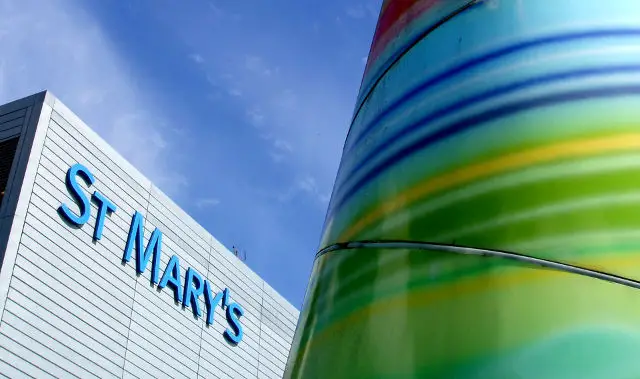This in from the Isle of Wight NHS Trust. Ed
The next phase of major work to redesign the way health and care services are delivered on the Island in the future is underway.
Health experts have begun examining how acute (hospital-based) specialty services can best be provided to better meet the current and future needs of local people. Key in their thinking will be how these services can offer the best quality of care and health outcomes for patients and are accessible, affordable and sustainable.
In-depth reviews of key clinical data
The process currently involves some initial best practice modelling and a series of key meetings with clinical staff including consultants, GPs, nurses, midwives and allied health professionals and other staff from the core specialty areas such as ENT, Urology, Paediatrics, Haematology, Cancer, Ophthalmology, Orthopaedics, Obstetrics & Gynaecology, Specialty Medicine, Radiology, Anaesthetics and Acute Medicine.
They are undertaking in-depth reviews of key clinical data as well as information regarding, for example, patient feedback, workforce capacity, demand and budgets to develop a potential framework for service delivery in the future for each of their specialty areas.
Working closely with Solent partners
This redesign process will include patient and carer representation to ensure the voice of service users and carers is kept at the heart of the process and will also benefit from input from Solent Acute Alliance partners (University Hospital Southampton and Portsmouth Hospitals) with whom the Island’s NHS is already working closely with across the Solent area.
At the end of this part of the process, in September, a series of options will be created identifying possible changes before a final ‘blueprint’ and implementation plan is created. At this point, there will be a further major public consultation programme to explain the proposals to residents and to also invite their comments.
Caring for our Island: Time to Act
This latest phase follows work undertaken last year looking at the whole health and care system – Caring for our Island: Time to Act. During this consultation, the community was asked to help redefine how wider health and care services could be provided in future by highlighting what worked well and what needed to change.
Key themes from the public feedback included the realisation people were willing to accept more responsibility for their own health, provided they had improved access to appropriate information and advice to enable them to better manage their illness or condition.
More joined-up services
It was also felt services needed to be more joined-up so people only had to tell their ‘story’ once. Furthermore, people wanted to see more care provided closer to where they live rather than in hospital and they also wanted it to be easier for people to access the right service at the right time.
Some of the improvements coming out of this phase in the process are already underway including the development of a mental health community safe haven, development of a paediatric assessment unit and a new approach to ‘triaging’ people who come into the Emergency Department (A&E) at St. Mary’s helping prevent unnecessary admissions and providing instead appropriate care and support in the community.
The redesign of acute specialty services will now examine how hospital-based specialty services need to be developed building on that initial public feedback and these key initiatives.
Pugh: Making progress, but need to go further still
Executive Medical Director at Isle of Wight NHS Trust, Mark Pugh, said:
“We need everyone to recognise that the current health and care system is in need of urgent repair so that we can provide the best possible care now and in the future for Island residents. As partners, we have committed to a new model of care; My Life a Full Life, that will see more services focused around people and their needs, delivered closer to home and in a more integrated way.
“We have already made progress in delivering changes, helping for example, to reduce Emergency Department (A&E) attendances and supporting more treatment in the community using a wider range of resources e.g. local area coordinators and care navigators, but we need to go further still and this is the next step in that process.”
Complex health and care needs
Steve Parker, Clinical Director and Consultant Breast & General Surgeon for Isle of Wight NHS Trust and Clinical Lead for the Acute Services Redesign, said,
“The reasons we are undertaking this whole process are now well known and, I believe, well understood: the Island’s population is ageing and, as it does so, developing more and more complex health and care needs and long-term conditions”
Steve continued,
“This all puts pressure on a system already struggling with reduced workforce capacity and constrained budgets – we need to act now to ensure services are sustainable in the future. No change is, quite simply, not an option. In fact, to be able to meet the needs of our population in the future, we will need to look at potentially radical changes in the way some of our services are provided.”
Specialist treatment on the mainland
One issue that has already been aired is whether the acute specialty services redesign will mean more patients needing to travel to the mainland for specialist treatments.
Steve said:
“No decisions have been made yet and nor will they be before there has been further consultation with the public, health professionals and other stakeholders.
“But my view is that our primary consideration must be providing the best possible healthcare for Island people. If better specialist treatment is available on the mainland either because the clinical staff have more experience and can maintain the required clinical standards because they are carrying out these procedures more routinely, or because they have better equipment, then it is our duty to look at that as an option, provided of course, there are suitable transport arrangements in place. We simply cannot risk services being potentially clinically unsafe and unsustainable.
“If providing some services off Island through our Solent Alliance partners does appear to be a better option in some cases, then that doesn’t necessarily immediately mean more travel. Right now for some surgical procedures, pre and post-operative care is carried out off the Island. Under any redesign, it may be possible to bring that back here on the Island and not necessarily to the hospital but actually closer to people’s homes in their local community. The net effect of which might actually mean less travel in overall terms.
“But I reiterate, no decisions have been made and there will be plenty of opportunity towards the autumn for the local community and wider stakeholders to tell us their views on the options we develop and their potential impact.”
For further information, or to comment on the acute services redesign visit the Website.
Image: © Used with the kind permission of Auntie P





